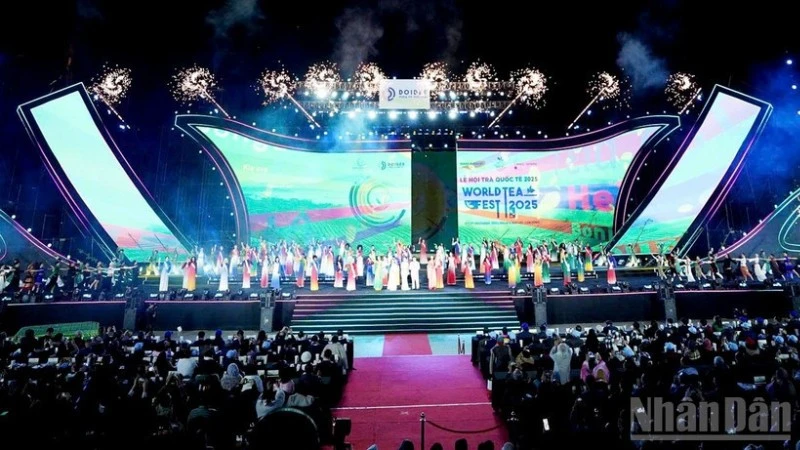Protecting domestic films by film distribution and dissemination
Vietnamese films at cinemas are currently dependent on the showing time frames and distribution channels of foreign enterprises.
According to preliminary statistics in 2021-2022, more than 80% of the market share of cinemas in Vietnam belongs to foreign companies, such as Lotte and CGV. The rest are small market shares with Vietnamese companies, such as Mega GS, Galaxy, BHD, and the State cinema system, along with a few small cinemas.
CGV holds 51% market share with a system of 81 cinemas, with 475 screens in 30 provinces and cities; Lotte holds about 30% market share with more than 42 cinemas. The overwhelming number of foreign cinemas has had a significant influence on the screening rate of Vietnamese films and the length of time Vietnamese films stay in cinemas.
Cinema is defined not only as an art form but also as a cultural industry. In the film industry, the "power" of cinemas is very great, because this is the channel to access and even dominate the tastes and demands of the public's cinema.
Additionally, cinemas also have the right to arrange screenings in terms of quantity and time. This arrangement greatly affects the revenue of a movie. Meanwhile, foreign cinemas are not very "interested" in Vietnamese films.
Thus, compared to Hollywood blockbusters or even Korean and Chinese movies, Vietnamese movies are also much "underdog".
Recently, Vietnam has seen movies "stir up" the box office with positive revenue, such as: "Face off: The ticket of destiny" (260 billion VND), "House of No Man" (475 billion VND), and "The Godfather" (427 billion VND). However, there are not many such films.
And from common practice, the recent release of films shows that it is necessary to have protective policies of the State to make Vietnamese films closer to the public.
Moreover, with the expectation of successfully building the film industry, protecting domestic films is also an effective way to increase revenue for the film industry, as well as the cultural industry in general.
Policies with practical value
In some countries with a developed film industry, the Government has special protection policies with many special incentives for the type of film. One of the countries that provides almost absolute protection for domestic cinema is the Republic of Korea (RoK).
The RoK's government stipulates that the rate of screening domestic films must be higher than those of imported films at cinemas. They also implement some policies, such as strictly supervising the import of films, reducing taxes and support costs, and encouraging economic groups to invest in production funds for domestic films.
In addition, many Korean film producers have always determined that the main goal is to produce films for domestic audiences. This is also a way to help the RoK become one of the few countries in the world that is less affected and can compete fairly with Hollywood blockbusters.
In France, the application of protectionist policy is reflected in the policy of regulating the film market, specifically, the state compulsorily invests in the production of movie content shown on television. At the same time, France has also implemented some policies such as applying quotas for television channels with content intended for European and French-speaking countries; arrangement of communication systems; granting permits to build cinemas to regulate; and market balancing going hand in hand with film censorship and classification.
China also has quite strict policies for cinemas to support domestic movies, such as clearly stipulating that the domestic movie screening time should not be less than two-thirds of the cinemas' total movie screening in a year; spending a specific time of the year only showing domestic films; and setting up a special budget fund to support filmmakers.
In Vietnam, the new Cinema Law, passed by the National Assembly in June 2022 and effective from January 1, 2023, has created a favourable legal framework for the development of the film industry.
For cinema to develop as an industry, it is necessary to follow economic laws and have policies in line with market realities.
Accordingly, in order to enforce the mandatory rate of showing Vietnamese films in cinemas, it also depends on market rules and product quality.
At the same time, there should be supportive policies from the state to "revive" the domestic cinema system with solutions such as: opening public-private cooperation and social resources to support domestic cinemas; and tax and land policies to build cinemas of Vietnamese people, for Vietnamese people.
On the other hand, it is also necessary to have policies to encourage the distribution of Vietnamese films abroad, contributing to bringing Vietnamese cinematic works to a wider audience.
















